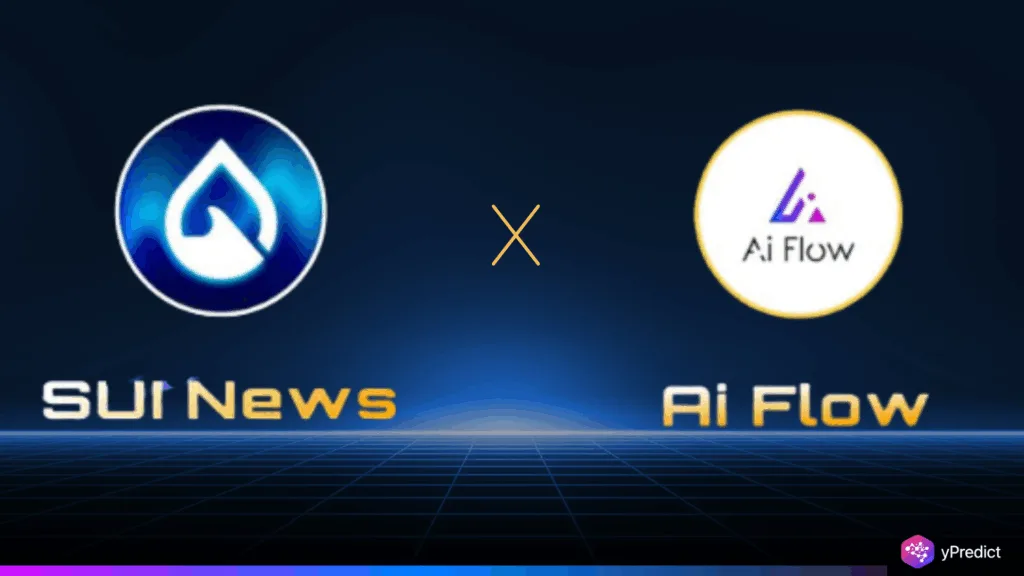
Sui News and AIFlow have announced a partnership aimed at supercharging the development of decentralized AI agents using AIFlow’s open-source framework. This collaboration, revealed on July 11, 2025, brings AI closer to real-world Web3 use by focusing on memory-based reasoning, modular design, and seamless blockchain integration. The framework runs on the BNB Chain, supporting low-latency, high-throughput environments ideal for agentic AI. For the AI world, this marks a shift from closed, centralized models to composable, transparent systems. The partnership also hints at token-powered participation, opening up new pathways for AI developers and communities to co-create and govern AI agents.
AI Agents Built for Real-World Web3 Tasks
The core of this collaboration lies in building decentralized AI agents that are more memory-aware, customizable, and blockchain-native. AIFlow’s framework enables developers to create agents that not only complete tasks but also learn from past experiences. This memory function mimics human-like continuity in workflows, crucial for anything from customer support bots to investment advisors. Modularity allows teams to assemble agents like building blocks, mixing models for reasoning, perception, or action. Running these agents on-chain adds transparency: their logic, outputs, and even learning history can be made verifiable and immutable.
From an AI innovation standpoint, this model promotes traceable intelligence. Agents aren’t just black boxes; they’re legible, open, and auditable by anyone. It’s a bold response to current concerns around “AI hallucinations” and unchecked bias. Blockchain adds a backbone for distributed trust, while agent memory ensures context retention, something even leading centralized models struggle to maintain across sessions.
This agentic shift also aligns with trends like modular foundation models and agent routing seen in research from OpenAI, Google DeepMind, and independent labs. By lowering the barrier to entry for developers and users, AIFlow’s tools could power a new wave of AI-native applications. Across decentralized finance, predictive news curation, and autonomous Web3 governance.
Why This Matters for AI’s Evolution
The Sui News and AIFlow partnership speaks to a deeper transformation in AI: from closed, monolithic systems to decentralized, user-controlled agents. In today’s ecosystem, large AI models are mainly controlled by corporate labs and served via APIs. But with frameworks like AIFlow, we’re seeing the birth of community-owned AI. Where agents are composable, verifiable, and governed through tokens.
This paradigm puts into question the pervading production-consumer trend of AI-as-a-service. Should it work, it would allow thousands of use-case-specific agents. Hyper-optimized for the task, to build on blockchain data and be capable of gradually evolving by themselves. Examples include: within the Sui News, agents may examine market dynamics, summarize governance proposals, or identify on-chain abnormalities, but all their actions are performed using an agent-based transparent-by-design and user-controlled framework.
It also opens the door for what some are calling “decentralized cognition,” where intelligent behavior emerges from networks of small, interoperable agents rather than a single centralized model. This is the kind of shift that could redefine AI’s architecture altogether, moving from monoliths to ecosystems. Of course, execution matters. Previous hype cycles have overpromised, and skepticism is healthy. But the core idea, giving AI tools memory, modularity, and decentralized infrastructure, is already being prototyped in the open. If widely adopted, this shift could reshape how AI is built, trusted, and scaled globally.
The Road Ahead for Agentic AI
As of July 2025, the Sui News x AIFlow partnership reflects a broader pivot toward open, composable, and blockchain-native AI systems. While the market’s reaction is mixed, the underlying architecture shows promise: agents that remember, adapt, and operate in transparent ecosystems. This model could address major challenges in AI governance, explainability, and user trust. Whether this collaboration becomes a blueprint or a footnote depends on its follow-through. But it’s clear the AI sphere is evolving, from models trained behind closed doors to intelligent agents that operate out in the open. And in that shift, partnerships like this one could lead the way.






